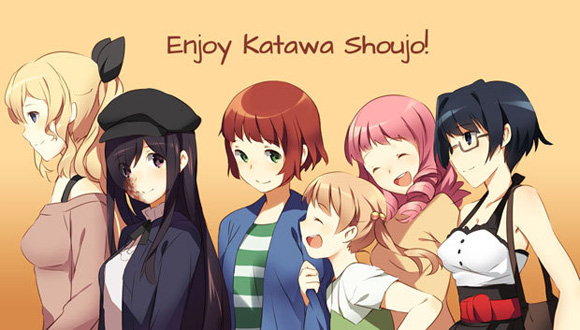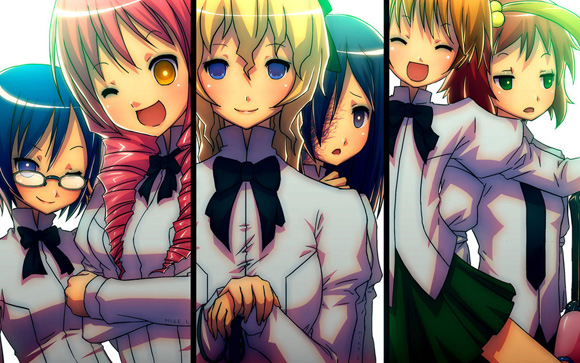

This isn’t a secret, but I’m not sure it’s something obvious either: I don’t write any of my own article titles at the Daily Dot. Sure, my editors take my suggestions and often ask for input, but they’re more adept at choosing headlines that will catch peoples’ attention and get their eyes on the page.
That might be especially clear with one of my stories today, 4chan’s Four Leaf Studio releases erotic, dating simulation game. While it’s a perfectly true statement, it’s clear we’re playing up the sex angle here. And personally, I don’t think that’s the part of the story that makes the game in question- Katawa Shoujo– so interesting.
I’ve been waiting to write this story for two years. After I read Leigh Alexander’s story on Katawa Shoujo in early 2010, I was fascinated. I’d never played an eroge before, but I immediately downloaded and played this one. My review- Katawa Shoujo: Empathy or Exploitation?– went up a month shy of two years ago from today.
I wrote about the game again in 2011 for Japanator’s yearly Ero Week- Katawa Shoujo: How an eroge changed my mind. I’d been working with a disabled teen for a reporting project in between writing these two articles, and it shows. In this opinion piece, I asserted that Katawa Shoujo does not fetishize disability, but presents it as one of many defining character traits.
Originally, I’d thought that I found this game so fascinating because it, as Alexander asserts, “combines the sincere with the unsettling” in its treatment of disability and sexuality. I’ve always been interested in disability rights, but I was especially immersed in 2010 as I completed a project about muscular dystrophy for graduate school.
However today, I realized that the most engaging- and impressive- part of Katawa Shoujo is its status as a fan project. Katawa Shoujo appears to have as high production values as any studio-produced eroge, but everyone on staff is an amateur. They’re just 21 people who banded together on 4chan, decided to make a game, and worked together for five years to do it.
And in the end, they simply gave the game away. This speaks volumes about their purpose: it was never their intent to become professional game developers. It was never their intent to do anything other than express their fandom for this doujinshi page of five disabled, hand drawn girls.
I interviewed 2DTeleidoscope for the story both because of his involvement with the game as well as his articulacy; I knew if anyone could express why my mainstream audience should care about the accomplishment of Katawa Shoujo, it was him. And he didn’t disappoint. Here’s what he wrote to me:
“Think of every novel that never gets written, every Internet community that dies in flames. Realize that Four Leaf Studios endured five years of rewrites, revisions and personal drama to produce this product, shuffling through staff like cards in a game of Old Maid. And yet the idea survived. The work is done. This is great and worthy of our admiration, no matter what you think of romance with disabled girls.”

4 Comments.
It was a fine article you wrote. :) Thanks for letting me be a part of it!
I’m sad that the story of Four Leaf ends here. Best wishes to these people and many thanks for the 5 years of hard work they put into this. I hope many more stories like this happen on the internet.
Thanks for the excellent reporting on this Lauren.
I just wanted to say I literally just finished my first play through of this game. I’d never played a visual novel before, but as an avid reader, I took it more like a story with images. Yes there was some ero, but I never felt like it was there to be erotic. To me it felt like a part of the story (at least on the path I chose.) In the end it was a beautiful story which actually left me with more than a few tears along the way. I’m still very wrapped up in the story I finished (and I think it might be a long time before I can try again on another path, I’m so caught up in the story I followed,) but I just wanted to share my thoughts on the wonderful experience I’ve had.
[…] The Otaku Journalist: The Inside Story: Four Leaf Studio Releases Katawa Shoujo […]